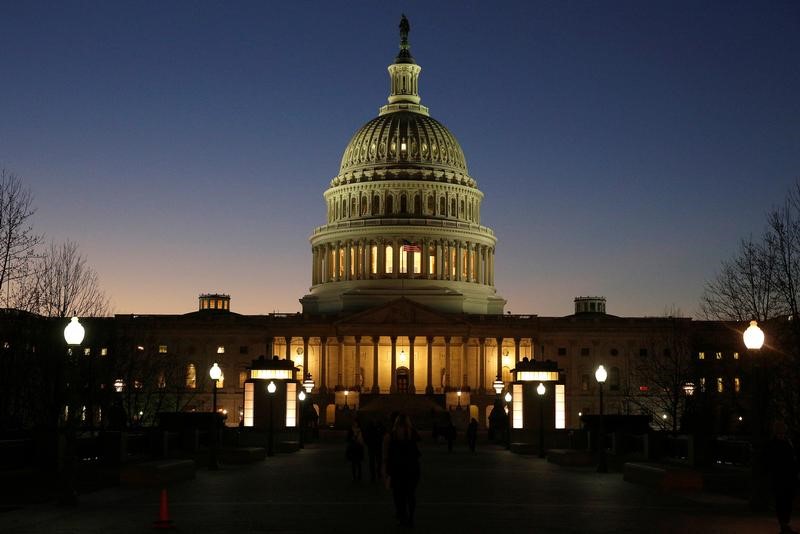By Richard Leong
NEW YORK (Reuters) - The U.S. Treasury bill market may have dodged a bullet on Wednesday when President Donald Trump and top Democrats backed a plan to raise the debt ceiling, but it implied that traders believe the risk of a U.S. default has not disappeared - only been deferred to December and beyond.
Interest rates on Treasury bills due in October, which are most vulnerable to the government being late to repay them if it cannot borrow more after late September, tumbled after the potential deal to raise the debt ceiling.
In contrast, T-bill rates in December jumped because the proposal would suspend the borrowing cap, currently at $19.9 trillion, until Dec. 15, Reuters data showed.
"That took pressure off the rates market, but we could see a replay in December," said Guy LeBas, chief fixed-income strategist at Janney Montgomery Scott in Philadelphia.
To be sure, while Trump and Democrats agreed to raise the debt ceiling into year-end, to fund the government and to provide relief aid to areas devastated by Hurricane Harvey, Republican leaders blasted the three-month debt limit extension.
"Even though it looks like it's a done deal, it hasn't been set in stone," said Tom Simons, Jefferies & Co's money market strategist in New York.
Even if a showdown on the debt ceiling re-emerges in mid-December, the Treasury may have raised enough cash and opt to engage in another round of extraordinary measures so the government has enough money to meet their debt and non-debt obligations, possibly into mid-2018, Simons said.
Morgan Stanley (NYSE:MS) analysts estimated the Treasury would sell $373 billion in net bill supply to achieve a cash balance of $360 billion at the end of December after cutting it to $60 billion in September.
Based on this scenario, T-bills due in December may not be vulnerable to a default, Simons said.
Still, traders bet the risk of another possible showdown on the debt ceiling will rear its head in mid-December.
Late Wednesday, the interest rate on the T-bill issue due on Dec. 14 jumped 7 basis points to 1.045 percent after hitting its highest since Aug. 10.
On the other hand, the T-bill rate on the issue due Oct. 5 fell 21 basis points to 1.040 percent after hitting its lowest level since July 19.
